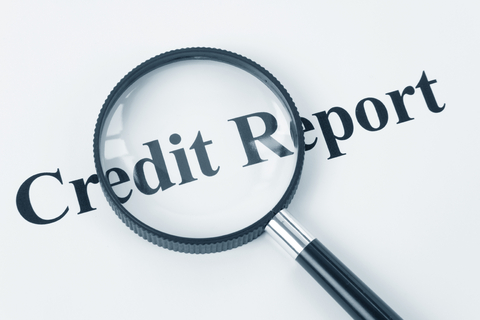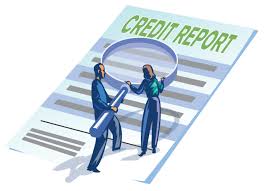Your rights to your credit reports
 Federal law requires each of the three nationwide consumer credit reporting companies – Equifax, Experian and TransUnion to give you a free credit report every 12 months if you ask for it. They also make it easy to accomplish many credit-related tasks right from your computer.
Federal law requires each of the three nationwide consumer credit reporting companies – Equifax, Experian and TransUnion to give you a free credit report every 12 months if you ask for it. They also make it easy to accomplish many credit-related tasks right from your computer.
What is a credit report?
The company that gives you the loan or credit keeps a record of how much and often you pay. Those companies and other sources also report your credit, loan and payment history to one or more credit reporting companies. The credit reporting companies combine the information from your different credit, loan and payment reports into a single credit file. Three nationwide companies prepare credit files for people in the U.S.: Equifax, Experian, and TransUnion.
A credit report is an organized list of the information in your credit file.
Credit reports may include:
-A list of companies that have given you credit or loans
-The total amount for each loan or credit limit for each credit card
-How often you paid your credit or loans on time, and the amount you paid
Credit reports may also include: -Companies that have asked to see your credit report within a certain time period. -Your address(es) and/or employers. – Other details of public record.
A consumer disclosure contains some of the same information as your credit report, but it has more information. It includes your total history of credit information. Some of this information is not displayed on the credit report viewed by lenders.
Under Federal law, you are entitled to receive one free copy of your credit report from each credit reporting company every 12 months.

Can companies that promise to clean up my credit report really do that?
The Federal Trade Commission (FTC) and the Consumer Finance Protection Bureau (CFPB) say that you should be wary of companies that claim they can repair your credit. These companies are commonly called credit clinics. They don’t do anything for you that you can’t do on your own for free.
Beware and consider not dealing with organizations that offer to create a new identity and credit file for you. The FTC, CFPB, and state attorneys general have filed legal actions against some of these organizations. The FTC, CFPB, and others warn that the following claims or actions signal that you may be dealing with a credit clinic:
- The company guarantees to remove late payments, bankruptcies, or similar information from a credit report.
- The company charges a lot of money to repair credit.
- The company asks you to write to the credit reporting company to verify the same credit account information in the file, over and over, even after the information has been determined to be correct.
- The company doesn’t want to or can’t provide a business address.
- The company pushes you to decide to engage them right away.
What is a credit score?
A credit score is the result of a formula that uses the information in your credit file, such as how well you have paid your bills in the past, to calculate how likely you are to pay your bills in the future.
The credit scores you get from different companies may not be the same.
There are a number of reasons for that:
Each company uses its own formulas for calculating credit scores. The differences in the formulas may lead to differences in your credit scores.
Companies may produce scores that give results on different scales.
Creditors or lender reports don’t always report to every credit reporting company. This means that information that the credit reporting companies plug into their formulas may differ from credit reporting company to credit reporting company.
Most people’s different credit scores are very close, despite that the different credit reporting companies calculate your scores using different formulas, and sometimes from different information. If one of your three credit scores is very different from the others, you may want to research why.
Your credit score estimates how likely you are to pay back loans or services that a lender may give you during the next two to three years. People with higher credit scores may be more likely to pay back their debts. People with lower credit scores may be less likely to pay their debts. Lenders take bigger risks when they lend money or provide services to people with low credit scores.
Credit reporting companies can show your credit report and/or credit score to other companies who have a lawful reason to ask for it. These may include potential lenders. Lenders use credit scores to help decide how risky it will be to lend you money or provide you a service. Potential employers may use credit scores to help evaluate how dependable you are.
Why don’t my free credit reports include credit scores?
Your credit report and your credit score are not the same thing. Your credit report is all the information that a credit reporting company has gathered about you. Credit reporting companies calculate your credit score by plugging the information in your credit report into their exclusive credit score formula.
Federal law gives you the right to ask for a copy of your credit report from each nationwide credit reporting company every year for free. However, the law does not require the credit reporting companies to give your credit score for free.
What makes my credit score go up or down?
Your credit score is based on multiple factors, your credit history, how much money you owe, how long you have owed it, how many different accounts you have, how often you pay and of course if on time, and what type of credits you have. All this will will cause your score to either go up or go down.
REQUEST YOURS NOW
View ALL Store Credit Cards